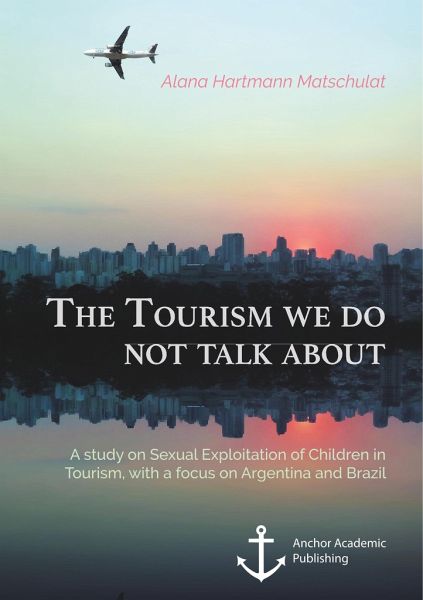
The Tourism we do not talk about. A study on Sexual Exploitation of Children in Tourism, with a focus on Argentina and Brazil

PAYBACK Punkte
0 °P sammeln!
Countries facing substantial socioeconomic problems where tourism acts as an engine for development often become vulnerable to the phenomenon known as "sex tourism". South America is a region that shows a high incidence of commercial activities of this kind, which also hides many forms of exploitation, sex trade of children being one of the most serious. What leaves room for its occurrence often are the gaps present in the legislations, along with the obsolete applicability of such laws, or even our indifference as actors capable of provoking social change.This book contains a study that seeks...
Countries facing substantial socioeconomic problems where tourism acts as an engine for development often become vulnerable to the phenomenon known as "sex tourism". South America is a region that shows a high incidence of commercial activities of this kind, which also hides many forms of exploitation, sex trade of children being one of the most serious. What leaves room for its occurrence often are the gaps present in the legislations, along with the obsolete applicability of such laws, or even our indifference as actors capable of provoking social change.
This book contains a study that seeks to identify the origins of the occurrence and the legal apparatus available to deal with the incidence of commercial sexual exploitation of children in the region, focusing on Brazil - as a pioneer - and Argentina - a recent country dealing with such an issue. Through an analysis of the evolution of the legal framework in both countries and the international mechanisms the book is also an invitation to the reader to reflect on this unmentioned side of tourism.
This book contains a study that seeks to identify the origins of the occurrence and the legal apparatus available to deal with the incidence of commercial sexual exploitation of children in the region, focusing on Brazil - as a pioneer - and Argentina - a recent country dealing with such an issue. Through an analysis of the evolution of the legal framework in both countries and the international mechanisms the book is also an invitation to the reader to reflect on this unmentioned side of tourism.














